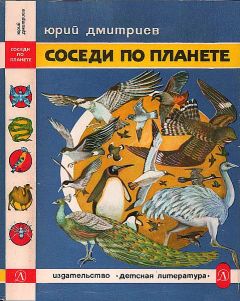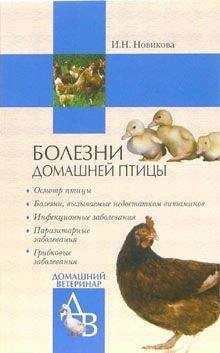Эдвард Уилсон - Хозяева Земли
Появление современного Homo sapiens. G. Philip Rightmire. «Middle and later Pleistocene hominins in Africa and Southwest Asia», Proceedings of the National Academy of Sciences, U.S.A. 106(38): 16046-16050 (2009).
Геномы жителей Африки. Stephan C. Schuster et al., «Complete Khoisan and Bantu genomes from southern Africa» Nature 463: 943-947 (2010).
ГЛАВА 10. КУЛЬТУРНЫЙ ВЗРЫВ
Серийный эффект основателя при расселении человека. Sohini Ramach-andran et al., «Support from the relationship of genetic and geographic distance in human populations for a serial founder effect originating in Africa» Proceedings of the National Academy of Sciences, U.S.A. 102(44): 15942-15947 (2005).
Генетический разброс при расселении вверх по Нилу. Henry Harpending and Alan Rogers, «Genetic perspectives on human origins and differentiation» Annual Review of Genomics and Human Genetics 1: 361-385 (2000).
Изменения климата и расселение из Африки. Andrew S. Cohen et al., «Ecological consequences of early Late Pleistocene megadroughts in tropical Africa» Proceedings of the National Academy of Sciences, U.S.A. 104(42): 16428-16427 (2007).
Homo sapiens приходят в Европу, а неандертальцы исчезают. )ohn F. Hoffecker, «The spread of modern humans in Europe» Proceedings of the National Academy of Sciences, U.S.A. 106(38): 16040-16045 (2009):).). Hublin, «The origin of Neandertals» Proceedings of the Notional Academy of Sciences, U.S.A. 106(38): 16022-16027 (2009).
Открытие нового вида гоминид, «Денисовского человека». David Reich et al., «Genetic history of an archaic hominin group from Denisova Cave in Siberia» Nature 468:1053-1060 (2010).
Расселение Homo sapiens по Старому Свету. Peter Foster and S. Matsumura, «Did early humans go north or south?» Science 308: 965-966 (2005): Cristopher N. Johnson, «The remaking of Australia’s ecology» Science 309: 255-256; Gifford H. Miller etal.. «Ecosystem collapse in Pleistocene Australia and a human role in megafaunal extinction» Science 309: 287-290 (2005).
Вторжение человека в Новый Свет. Ted Goebel, Michael R. Waters, and Dennis H. O’Rourke, «The Late Pleistocene dispersal of modern humans in the Americas» Science 319: 1497-1502 (2008); Andrew Curry, «Ancient excrement» Archaeology, pp. 42-45 (july/August 2008).
Перерывы в появлении культурных новшеств. Francesco d’Errico et al., «Additional evidence on the use of personal ornaments in the Middle Paleolithic of North Africa» Proceedings of the National Academy of Sciences, U.S.A. 106(38): 16051-16056 (2009).
Скорость эволюции увеличивается по мере расселения человека. John Hawks et al., «Recent acceleration of human adaptive evolution» Proceedings of the National Academy of Sciences, U.S.A. 104(52): 20753-20758 (2007).
Адаптивная эволюция в недавней эволюционной истории человека. Jun Gojobori et al., «Adaptive evolution in humans revealed by the negative correlation between the polymorphism and fixation phases of evolution» Proceedings of the National Academy of Sciences, U.S.A. 104(10): 3907-3912 (2007).
Изменения частоты мутантных генов. Jun Gojobori et al., «Adaptive evolution in humans revealed by the negative correlation between the polymorphism and fixa-
tion phases of evolution» Proceedings of the National Academy of Sciences, U.S.A. 104(10): 3907-3912 (2007).
Гены и эволюция когнитивной деятельности. Ralph Haygood et al., «Contrasts between adaptive coding and noncoding changes during human evolution» Proceedings of the National Academy of Sciences, U.S.A. 107(17): 7853-7837 (2010).
Наследуемость умственных признаков. В. Devlin, Michael Daniels, and Kathryn Roeder, «The heritability of IQ» Nature 388: 468-471 (1997). По разным оценкам, этот фактор варьирует от 0.4 до 0.7; скорее всего, он ближе к нижней границе.
Первый закон Туркхаймера. Е. Turkheimer, «Three laws of behavior genetics and what they mean» Current Directions in Psychological Science 9(5): 160-164 (2000).
Генетические факторы и социальные сети, lames Fowler, ChristopherT. Dawes, and Nicholas A. Christakis, «Model of genetic variation in human social networks» Proceedings of the National Academy of Sciences, U.S.A. 106(6): 1720-1724 (2009).
Интеллектуальные концепции, появившиеся в неолите или раньше. Dwight Read and Sander van der Leeuw, «Biology is only part of the story» Philosophical Transactions of the Royal Society В 363:1959-1968 (2008).
Происхождение домашних растений. Colin Е. Hughes et al., «Serendipitous backyard hybridization and the origin of crops» Proceedings of the National Academy of Sciences, U.S.A. 104(36): 14389-14394 (2007).
Естественный отбору современных людей. Steve Olson, «Seeking the signs of selection» Science 298: 1324-1325 (2002); Michael Balter, «Are humans still evolving?» Science 309: 234-237 (2005); Cynthia M. Beall et al„ «Natural selection on EPASi (HiF2a) associated with low hemoglobin concentration in Tibetan highlanders» Proceedings of the National Academy of Sciences, U.S.A. 107(25): 11459-11464 (2010): Oksana Hlodan, «Evolution in extreme environments» BioScience 60(6): 414-418 (2010).
ГЛАВА li. ПРЫЖОК К ЦИВИЛИЗАЦИИ
«Прыжок к цивилизации»: от племен к государствам. Kent V. Flannery, «The cultural evolution of civilizations» Annual Review of Ecology and Systematics 3: 399-426 (1972): H. T. Wright, «Recent research on the origin of the state» Annual Review of Anthropology 6: 379-397 (1977): Charles S. Spencer, «Territorial expression and primary state formation» Proceedings of the National Academy of Sciences, U.S.A. 107: 7119-7126 (2010).
Иерархический принцип Саймона. Herbert A. Simon, «The architecture of complexity» Proceedings of the American Philosophical Society 106:467-482 (1962).
Вариабельность личностных признаков в Буркина-Фасо. Richard W. Robins, «The nature of personality: genes, culture, and national character» Science 310: 62-63 (2005).
Внутрикультурная и межкультурная личностная изменчивость. A. Terraciano et al., «National character does not reflect mean personality trait levels in 49 cultures» Science 310: 96-100 (2005).
Время возникновения цивилизаций-государств. Charles S. Spencer, «Territorial expansion and primary state formation» Proceedings of the National Academy of Sciences, U.S.A. 107(16): 7119-7126 (2010).
Датировка возникновения первичных государств. Charles S. Spencer, «Territorial expansion and primary state formation» Proceedings of the National Academy of Sciences, U.S.A. 107(16): 7119-7126 (2010).
Быстрое возникновение первичного государства на Гавайских островах.
Patrick V. Kirch and Warren D. Sharp, «Coral 230Tb datingof the imposition ofa ritual control hierarchy in precontact Hawaii» Science 307:102-104 (2005).
Узоры на скорлупе страусиных яиц. Pierre-)ean Texier et al., «А Howiesons Poort tradition of engraving ostrich eggshell containers dated to 60,000 years ago at Diepkloof Rock Shelter, South Africa» Proceedings of the National Academy of Sciences, U.S.A. 107(14): 6180-6185 (2010).
Древнейшее африканское искусство и оружие. Constance Holden, «Oldest beads suggest early symbolic behavior» Science 304: 369 (2004); Christopher Henshilwood et al., «Middle Stone Age shell beads from South Africa» Science 304: 404 (2004).
Древний храм в Гёбекли-Тепе. Andrew Curry, «Seeking the roots of ritual» Science 319: 278-280 (2008).
Происхождение письменности. Andrew Lawler, «Writing gets a rewrite» Science 292: 2418-2420 (2001); John Noble Wilford, «Stone said to contain earliest writing in Western Hemisphere» New York Times, A12 (15 September 2006).
Значение древних надписей. Barry В. Powell, Writing: Theory and History of the Technology of Civilization (Malden, MA: Wiley-Blackwell, 2009).
Культурная эволюция времен неолита и истоки разницы в уровне жизни. Jared Diamond, Guns, Germs, and Steel: The Fates of Human Societies (New York: W. W. Norton, 1997); русский перевод: Джаред Даймонд. «Ружья, микробы и сталь. Судьбы человеческих обществ.» ACT. Москва, 2012 г.; Douglas A. Hfbbs Jr. and Ola Olsson, «Geography, biogeography, and why some countries are rich and others are poor» Proceedings of the National Academy of Sciences, U.SA. 101(10): 3715-3720 (2004).
ГЛАВА 12. ПОЯВЛЕНИЕ ЭУСОЦИАЛЬНОСТИ
Обилие общественных насекомых в амазонском лесу. Н. J. Fittkau and Н. Klinge, «On biomass and trophic structure of the central Amazonian rainforest ecosystem» Biotropica 5: 2-14 (1973).
ГЛАВА 13. ПРИЧИНЫ УСПЕХА ОБЩЕСТВЕННЫХ НАСЕКОМЫХ
Муравьи-кочевники и их подопечные. U. Maschwitz, М. D. Dill, and J. Williams, «Herdsmen ants and their mealybug partners» Abhandlungen der Senckenbergischen Naturforschenden Gesellschaft Frankfurt am Main 557:1-373 (2002).
ГЛАВА 14. НАУЧНАЯ ЗАГАДКА РЕДКОСТИ ОБЩЕСТВЕННОГО ОБРАЗА ЖИЗНИ Эволюционные истоки эусоциальности. Edward О. Wilson and Bert Holldobler, «Eusociality: Origin and consequences» Proceedings of the National Academy of Sciences, U.S.A. 102(38): 13367-13371 (2005); Charles D. Michener, The Bees of the World (Baltimore: Johns Hopkins University Press, 2007); Bryan N. Danforth, «Evolution of sociality in a primitively eusocial lineage of bees» Proceedings of the National Academy of Sciences, U.SA. 99(1): 286-290 (2002): Bert Holldobler and Edward 0. Wilson, The Superorganism: The Beauty, Elegance, and Strangeness of Insect Societies (New York: W. W. Norton, 2009).
Эусоцивльностьу раков-щелкунов.). Emmett Duffy, С. L. Morrison, and R.Rios, «Multiple origins of eusociality among sponge-dwelling shrimps (Synalpheus)» Evolution 54(2): 503-516 (2000).
Уникальные эволюционные события. Geerat j. Vermeij, «Historical contingency and the purported uniqueness of evolutionary innovations» Proceedings of the National Academy of Sciences, U.S.A. 103(6): 1804-1809 (2006).
Помощники по уходу за птенцами. В. J. Hatchwell and ]. Komdeur, «Ecological constraints, life history traits and the evolution of cooperative breeding» Animal Behaviour 59(6): 1079-1086 (2000).
ГЛАВА 15. АЛЬТРУИЗМ И ЭУСОЦИАЛЬНОСТЬ НАСЕКОМЫХ НАХОДИТ ОБЪЯСНЕНИЕ
Происхонщение обществ насекомых. William Morton Wheeler, Colony Founding among Ants, with an Account of Some Primitive Australian Species (Cambridge, MA: Harvard University Press, 1933); Charles D. Michener, «The evolution of social behavior in bees» Proceedings of the Tenth International Congress in Entomology, Montreal 2: 441-447 (1956); Howard E. Evans, «The evolution of social life in wasps» Proceedings of the Tenth International Congress in Entomology, Montreal, 2: 449-457 (1956).
Альтернатива теории родственного отбора. Martin A. Nowak, Corina E. Tarnita, and Edward 0. Wilson, «The evolution of eusociality» Nature 466:1057-1062 (2010). Более свежая сводка содержится в работе: Martin A. Nowak and Roger Highfield in SuperCooperators: Altruisim, Evolution, and Why We Need Each Other to Succeed (New York: Free Press, 2011).
Шаги на пути к эусоциальности у насекомых. Edward О. Wilson, «One giant leap: How insects achieved altruism and colonial life» BioScience 58:17-25 (2008).
Природные ресурсы и ранние этапы эусоциальности у насекомых. Edward О. Wilson and Bert Holldobler, «Eusociality: Origin and consequences» Proceedings of the National Academy of Sciences, U.S.A. 102(38): 13367-13371 (2005).
Одиночные Hymenoptera. James T. Costa, The Other Insect Societies (Cambridge, MA: Belknap Press of Harvard University Press, 2006).
Эусоциальные жуки. D. S. Kent and ). A. Simpson, «Eusociality in the beetle Austroplatypus incompertus (Coleoptera: Curculionidae)» Naturwissenschaften 79: B6-87 (1992).
Эусоциальные трипсы и тли. Bernard ]. Crespi, «Eusociality in Australian gall thrips» Nature 359:724-726 (1992); David L. Stern and W. A. Foster, «The evolution of soldiers in aphids» Biological Reviews of the Cambridge Philosophical Society 71: 27-79 (1996).
Эусоциальные раки-щелкуны. J. Emmett Duffy, «Ecology and evolution of eusociality in sponge-dwelling shrimp» in J. Emmett Duffy and Martin Thiel, eds., Evolutionary Ecology of Social and Sexual Systems: Crustaceans as Model Organisms (New York: Oxford University Press, 2007).




